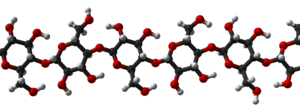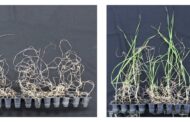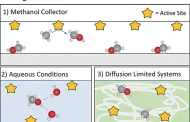
- Image via Wikipedia
New Enzyme May Lead to Cheaper Biofuel
Logging residue, branch clippings and even prawn shells may serve as raw materials for cheaper biofuels — thanks to a new enzyme that breaks down biomass more quickly. What’s more, this could help to curtail the current practice of using valuable food plants for fuel production
Norwegian scientists reported the promising findings recently in the journal Science.
Simple in theory, but…
Ethanol and methane are alternative energy sources that can be produced through the decomposition of carbohydrate-rich biomass of both marine and terrestrial origins. Potential sources include shellfish, which are full of the carbohydrate chitin, and wood and waste wood, since they contain cellulose.
Finding a quick, efficient means of converting biomass that is rich in chitin or cellulose into biofuel, however, has been difficult. This means that much of today’s biofuel is derived from food plants such as sugar cane, corn and rapeseed — crops that could be used to feed people.
“In theory it’s easy to convert the carbohydrates in cellulose, for instance, to small sugar molecules that nourish microorganisms which in turn produce methane and ethanol. But in practice, it has proven to be quite challenging,” explains Dr Gustav Vaaje-Kolstad, Researcher at the Norwegian University of Life Sciences (UMB). He is among the seven co-authors of the article in the journal Science.
The Latest Streaming News: Biomass updated minute-by-minute








